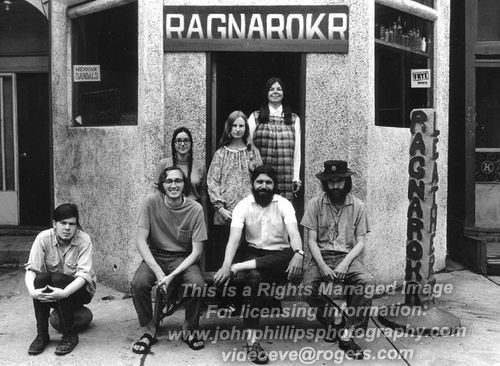Compare and contrast time: $35 million in guaranteed loans to relief efforts in Asia vs. a $40 million dollar inaguaration.
Frank Rich uses this tidbit to describe a moment of 'let them eat armor'....
Frank Rich: New Year War Cry: Party On:
As the soldiers in Iraq soldier on, we party on. Washington's next celebration, a $40 million inauguration, will be most entertaining....
... Such is the disconnect that Washington and the news media react with slack-jawed shock when one of those good soldiers we support so much speaks up at a town hall meeting in Kuwait and asks the secretary of defense why vehicles that take him and his brothers into battle lack proper armor.
Much has been made of this incident, yet it hardly constituted big news. It's no secret to anyone, including Donald Rumsfeld, that the troops have often been undersupplied. Dana Priest of The Washington Post heard soldiers asking the defense secretary "similar questions about their body armor" when traveling with him a year ago. In October, 23 members of an Army Reserve unit disobeyed a direct order to deliver fuel, partly because they decided that the vulnerability of their trucks made the journey tantamount to a suicide mission. As far back as last spring, Stars and Stripes was reporting that desperate troops were using sandbags as makeshift vehicle armor. Even now, reports The Los Angeles Times, National Guard soldiers are saying they have been shipped to war from Fort Bliss with "chronic illnesses, broken guns and trucks with blown transmissions."
When Mr. Rumsfeld told Specialist Thomas Wilson in Kuwait that the only reason the troops lacked armor was "a matter of production and capability," he was lying. The manufacturers that supply the armor were quick to respond that they had been telling the Pentagon for months that they could increase production, in the case of one company (ArmorWorks in Arizona) by as much as 100 percent. But that news was quickly drowned out by cable and talk radio arguments over whether Mr. Wilson should or should not have consulted with an embedded reporter about the phrasing of his question. Soon Mr. Rumsfeld was off to Iraq for a P.R. tour (message: I care) in which he used troops as photo-op accessories and thanked a soldier for asking a softball question "not planted by the media." Washington could go back to worrying about more pressing domestic problems, like how to cook the books so that Social Security can be fixed cost-free.
The truth is that for all the lip service paid to supporting the troops, out of sight is often out of mind. Even the minority that remains gung-ho about the war in Iraq is quick to blame the grunts for anything that goes wrong. Specialist Wilson, Rush Limbaugh said, was guilty of "near insubordination" for his question in Kuwait; the poor defense secretary "was set up," whined The New York Post. The same crowd tells us that a few low-level guards are solely responsible for the criminal abuse of prisoners at Abu Ghraib and in Guantánamo Bay, not any policy-setting higher-ups who may be sitting in that audience at Kennedy Center. President Bush even tried to pass the buck for his premature aircraft carrier victory jig to the troops, telling the press months later that "the 'Mission Accomplished' sign, of course, was put up by the members of the U.S.S. Abraham Lincoln, saying that their mission was accomplished." Of course.
Back then, the Pentagon projected that our military occupation of Iraq would end in December 2004. But two days after appearing in the box at the Kennedy Center Opera House, the president donned a snappy muted green "commander in chief" jacket - a casual Friday version of the full "Top Gun" costume he'd worn on the Lincoln - to address marines at Camp Pendleton in California who were going to war, not coming home. (Slate reported this week that "nearly one-quarter of U.S. combat dead in 2004 were stationed in Camp Pendleton.") It was the anniversary of Pearl Harbor, and Mr. Bush drew the expected analogy: "Just as we defeated the threats of fascism and imperial communism in the 20th century, we will defeat the threat of global terrorism." But three years into it, can we win a war that most of the country senses has gone astray in Iraq and that the party in power regards as a lower priority than lower taxes?
The ethos could hardly have been more different during the World War II so frequently invoked by Mr. Bush. As David Brinkley recounted in his 1988 history, "Washington Goes to War," the Roosevelt administration's first big push "was a tremendous voluntary program to reduce the deficit, encourage saving, trim spending and thus curb inflation - the sale of war bonds." Though bonds would not in the end pay for the war - that would require the sacrifice of paying taxes - F.D.R. believed that his campaign "would give the public a sense of involvement in a war being fought thousands of miles away, a war so distant many Americans had difficulty at times remembering it was there at all." Gen. George Marshall, the Army's chief of staff, took it on himself to write notes by hand to the family of each man killed in battle until the volume forced the use of Western Union telegrams.
Well, Mr. Rumsfeld has sworn he'll stop delegating condolence letters to his Autopen. But otherwise the contrast between the Washington that won World War II and the Washington fighting a war in Iraq is so striking it can even be found in the cultural lineage of the Kennedy Center show. That show's producer, as it happens, is George Stevens Jr., the son of the great Hollywood filmmaker George Stevens. In his day, the elder Stevens created his own wartime Washington entertainment: a glorious 1943 romantic comedy, "The More the Merrier" (just out on DVD), set in the newly mobilized capital, that, though fiction, is in itself a striking document of the difference between then and now. While it portrays a patriotic Washington as frivolously beset by party animals, bureaucrats and lobbyists as today's, there's an underlying ethos of shared sacrifice, literally down to the living arrangements necessitated by a housing shortage. It might as well be a different civilization.
Washington's next celebration will be the inauguration. Roosevelt decreed that the usual gaiety be set aside at his wartime inaugural in January 1945. There will be no such restraint in the $40 million, four-day extravaganza planned this time, with its top ticket package priced at $250,000. The official theme of the show is "Celebrating Freedom, Honoring Service." That's no guarantee that the troops in Iraq will get armor, but Washington will, at least, give home-front military personnel free admission to one of the nine inaugural balls and let them eat cake.
not to mention some actual statistics on American generosity, via Tom Tomorrow
The American aid figure for the current disaster is now $35 million, and we applaud Mr. Bush's turnaround. But $35 million remains a miserly drop in the bucket, and is in keeping with the pitiful amount of the United States budget that we allocate for nonmilitary foreign aid. According to a poll, most Americans believe the United States spends 24 percent of its budget on aid to poor countries; it actually spends well under a quarter of 1 percent.
Bush administration officials help create that perception gap. Fuming at the charge of stinginess, Mr. Powell pointed to disaster relief and said the United States "has given more aid in the last four years than any other nation or combination of nations in the world." But for development aid, America gave $16.2 billion in 2003; the European Union gave $37.1 billion. In 2002, those numbers were $13.2 billion for America, and $29.9 billion for Europe.
Making things worse, we often pledge more money than we actually deliver. Victims of the earthquake in Bam, Iran, a year ago are still living in tents because aid, including ours, has not materialized in the amounts pledged. And back in 2002, Mr. Bush announced his Millennium Challenge account to give African countries development assistance of up to $5 billion a year, but the account has yet to disperse a single dollar.





















 "AirPort Express with Air Tunes
"AirPort Express with Air Tunes


















 click for larger version
click for larger version
 A news truck
A news truck CTA Building, and news trucks partially obscured
CTA Building, and news trucks partially obscured Skybridge
Skybridge




























